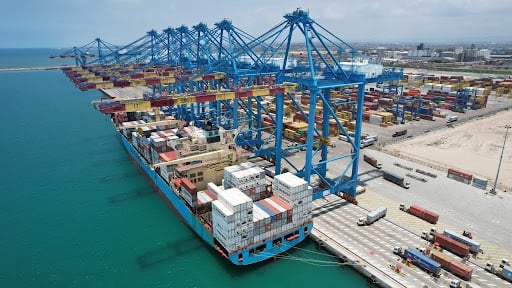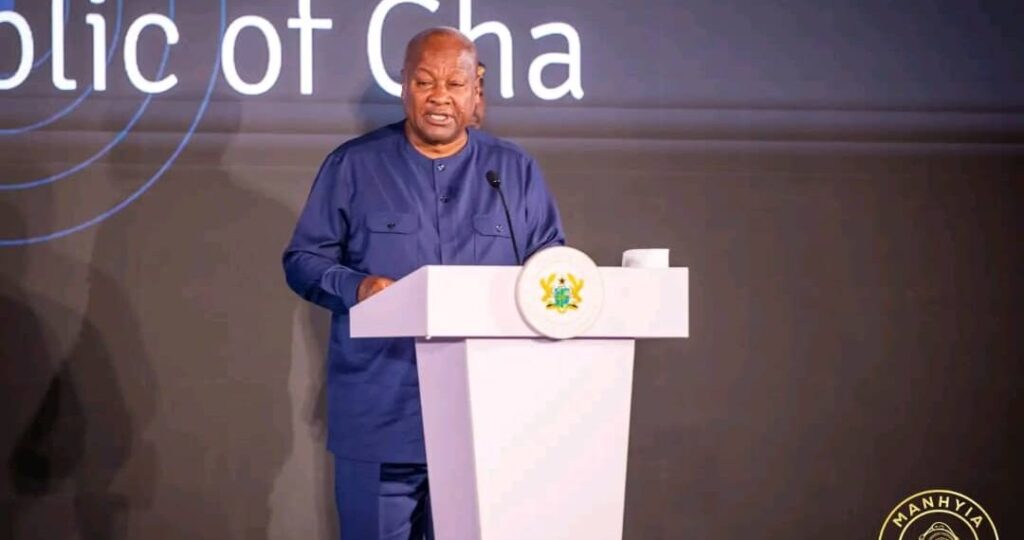In a bold and urgent move to clamp down on illegal mining—popularly known as galamsey—that continues to ravage Ghana’s environment, the Ministry of Transport has imposed an immediate ban on the importation of excavators without proper authorisation.
The announcement, made by sector minister Joseph Bukari, signals a significant escalation in the state’s ongoing war against the destructive practice that has led to widespread deforestation, contamination of river bodies, and devastation of agricultural lands.
Speaking to the press at the Tema Port, Hon. Bukari expressed deep concern over the alarming volume of excavators entering Ghana’s ports, many of which are suspected to be destined for illegal mining operations in forest reserves and riverbanks.
“We, the Ministry of Transport, in our support to the fight against illegal mining—what we all know to be galamsey—are putting in place this prohibition of importation of excavators into our country. If you pay a visit to the port, you will see an invasion of excavators. We receive over 200 excavators on a daily basis.”
Hon. Joseph Bukari Nikpe, Ghana’s Transport Minister
The numbers are staggering. According to the Minister, over 1,200 excavators are currently detained at the Tema Port alone, awaiting clearance, while intelligence suggests that another 3,000 are en route by sea.

This, according to him, is a disturbing and worrying situation, asserting that Ghana can curb the scourge of illegal mining if the importation of excavators is properly regularised.
Multi-Agency Taskforce
In a bid to enforce the ban effectively, the Ministry of Transport has joined forces with the Ministry of Finance and the Ministry of Lands and Natural Resources to form a multi-agency task force.
This group will work hand-in-hand with the Customs Division of the Ghana Revenue Authority to identify, profile, and regulate all importers and dealers of excavators.
“We will go into the records, and that will tell us who qualifies to import or clear excavators at our ports. Customs is charged to come out with the list of all the dealers and importers.”
Hon. Joseph Bukari Nikpe, Ghana’s Transport Minister
The Transport Minister also made it clear that certified mining companies and contractors who already have the necessary permits can still retrieve their equipment from the ports.
However, entities that cannot demonstrate the legitimate need for excavators will not be granted clearance. “If your company or work does not require the use of excavators, don’t bother requesting clearance,” he warned. “Because we would either confiscate it or we would not allow it to be cleared.”

To deter defaulters, Hon. Bukari pointed to the Minerals and Mining Act 2019, particularly section 99(7), which outlines specific penalties for the illegal importation or misuse of excavators.
“As for the penalties, they are there in the Act, and if you go through them, you’ll find clearly the repercussions for using excavators in galamsey operations”.
Hon. Joseph Bukari Nikpe, Ghana’s Transport Minister
Presidential Commitment
The announcement comes on the heels of comments made by President John Dramani Mahama during the recently held Mining in Motion Conference in Accra.
The President revealed that the government would soon implement a new policy dubbed “No Permit, No Excavator” to regulate mining equipment imports.
President Mahama stressed that mining cannot be sustainable unless it is also responsible. He noted that Ghana, despite its relatively small size, now has more excavators than any other country on the continent—an anomaly that signals regulatory failure and the growing impunity of illegal miners.

He warned that the environmental degradation, polluted water bodies, and displaced communities linked to galamsey are not inevitable byproducts of mining but rather symptoms of poor oversight and political neglect.
While the new policy’s implementation is still in its early days, it has sparked cautious optimism among environmental advocates and local communities affected by galamsey.
Many are hopeful that a strict permit regime and firm enforcement at the ports will finally stem the inflow of equipment that fuels illegal mining operations across the country.
However, persistent political will and impartial enforcement are necessary for this endeavor to succeed. Because of institutional weakness, political meddling, and corruption, previous attempts to control illicit mining have frequently failed.
Therefore, if the policy is to have a significant impact, the task force must function openly and without political influence..
The stakes are very high. Ghana’s farmland, rivers, and forests are all under siege. Land degradation is uprooting entire communities and contaminating them with mercury.
Therefore, the new “No Permit, No Excavator” policy is more than just an administrative ruling; it is a demonstration of the government’s commitment to addressing one of the most important environmental and economic issues confronting the country today.
This policy could be a game-changer in Ghana’s protracted and difficult fight against illegal mining if it is consistently implemented and supported by more extensive institutional reforms.
However, it might become just another headline in a cycle of promises and failures if enforcement is lax or compromised by special interests.



















